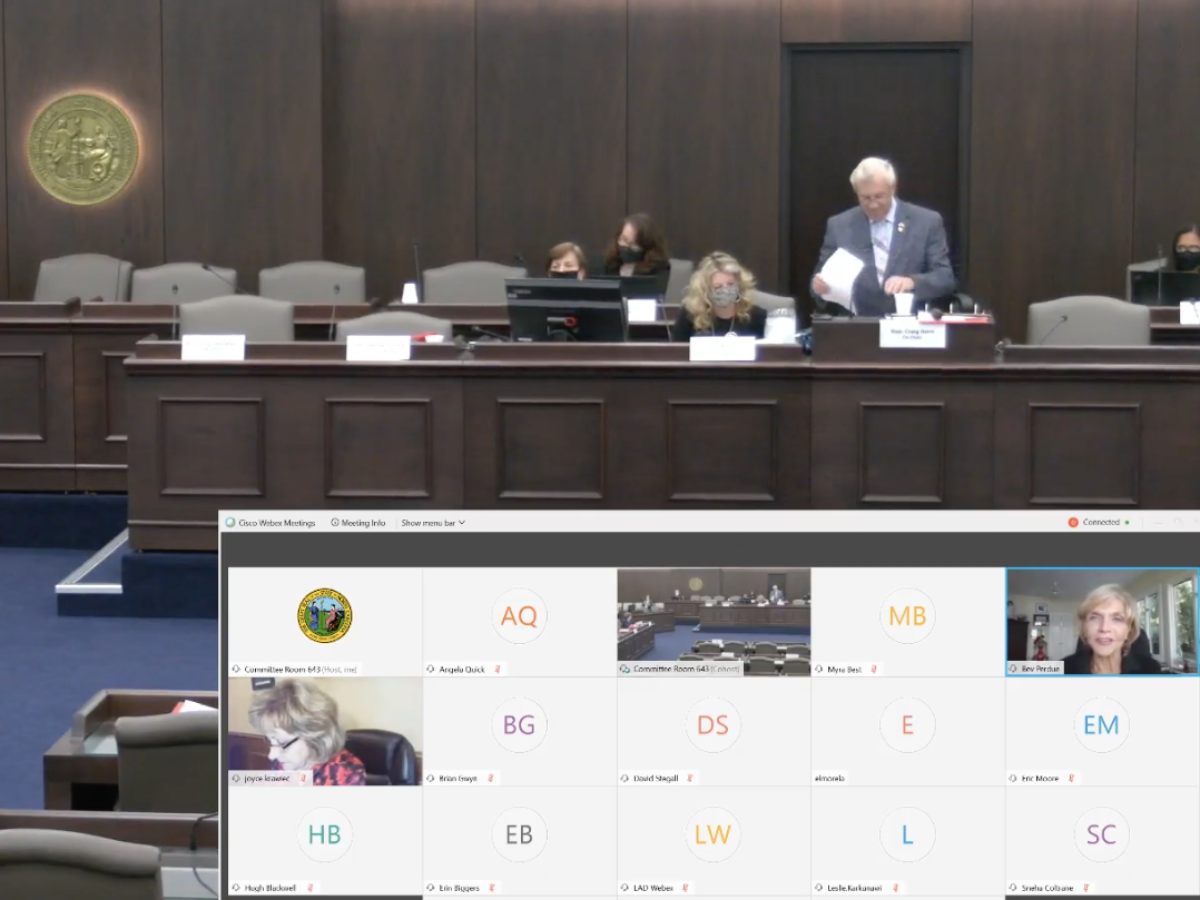
Lawmakers at the Joint Legislative Education Oversight Committee heard about attempts to make micro-credentials a statewide system of professional development during a meeting on Tuesday. They also heard an annual report on ApprenticeshipNC, an apprentice program run through the state’s community colleges.
Former Democratic Gov. Bev Perdue, head of digiLEARN, a nonprofit focused on “accelerating digital learning,” is spearheading the development of a micro-credential program along with partners such as the state Department of Public Instruction, RTI International, and New America.
Perdue said that the single biggest factor in student success is having an effective teacher.
“Effective teachers, though, need an innovative, different kind of professional learning system,” she said. “One that includes micro-credentials.”
Perdue described micro-credentials as a digital form of certification. Basically, if a teacher sees a skill or competency they want to master, they can go online and get it from wherever they are located.
This is even more important now, she said, given the move online for teachers and students following the advent of COVID-19 and the pandemic that shut down school buildings for months.
Perdue said that the success of a statewide micro-credential system depends on a few things. One, the micro-credential needs to be portable. If a teacher gets one in Alamance County, that micro-credential also needs to apply in Wake County or even in another state.
And, Perdue says that a teacher needs to be rewarded if they get a micro-credential, just as a worker in any other industry would.
“I think you’ve got to be paid for doing that,” she said.
She said she hopes that the General Assembly and the private sector would recognize the need to reward teachers who get micro-credentials.
Rep. Craig Horn, R-Union, a chair of the committee, said that micro-credentials can help people better understand what kinds of teachers are in a classroom.
“We as a legislature have been very concerned about … ensuring top quality teachers in our classrooms,” he said.
Perdue said that the groups involved in the creation of this micro-credential plan will come back to lawmakers in March with policy recommendations after conducting a feasibility study, stakeholder meetings, and more.
Sign up for Awake58, our newsletter on all things community college.
ApprenticeshipNC
Lawmakers also heard about ApprenticeshipNC, the apprentice program run through the state’s community college system.
Maureen Little, the vice president of economic development for the community college system, talked about the advantages of registered apprenticeships, which bring together community colleges, employers, and students to match students with good training opportunities.
Little said the program starts with the employers. The apprenticeships are developed with them and involve a “structured, on-the-job learning component,” that must be at least 2,000 hours.
Job-related education doesn’t have to be received from community colleges, but can be.
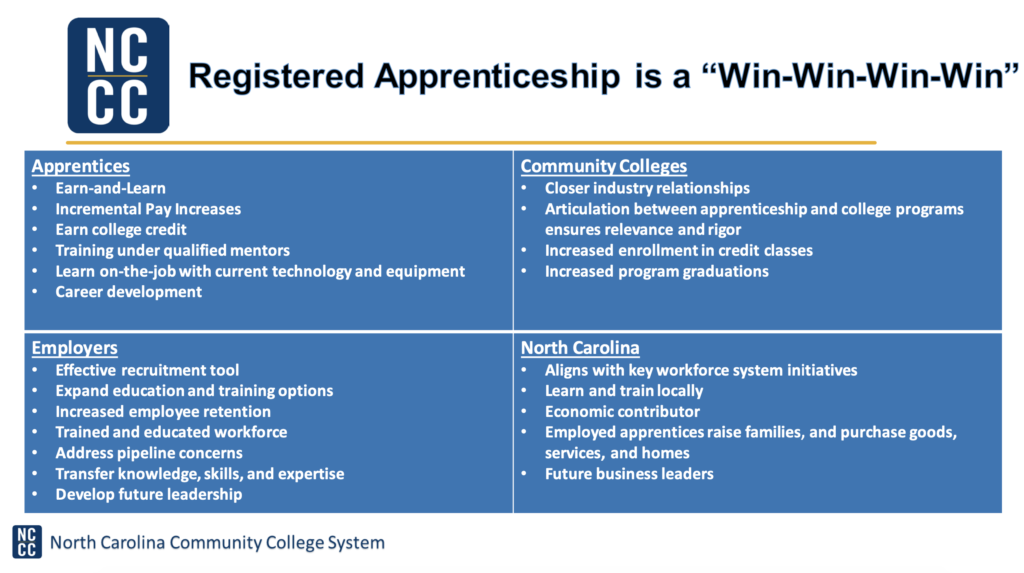
Thirty-one of the state’s 58 community colleges are “sponsors” of the program. Here is a list:
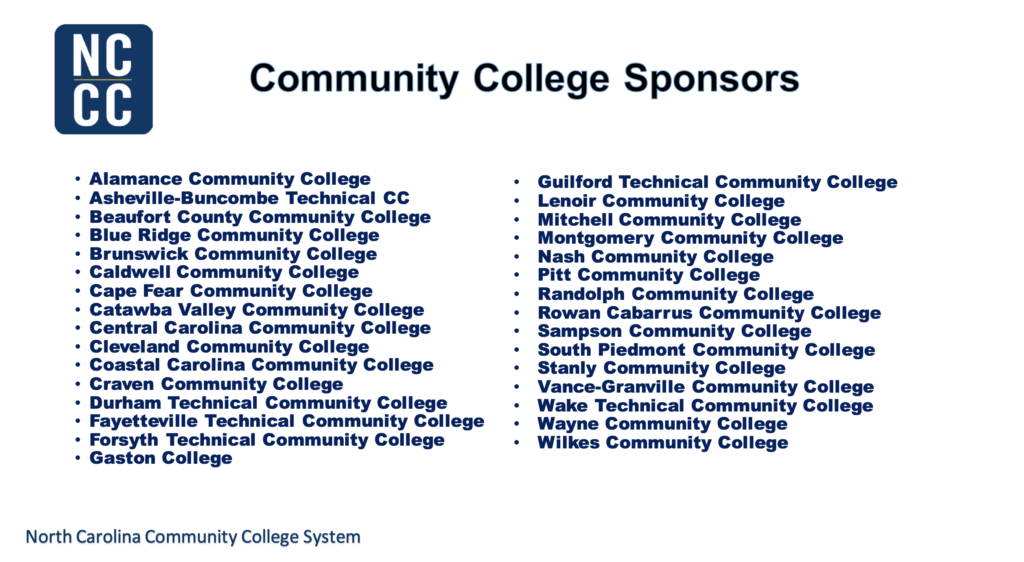
Little also gave lawmakers an overview about the growth in both registered apprenticeships as well as youth apprenticeships over the years.
Registered apprenticeships have more than doubled between fiscal year 2016 and 2020.
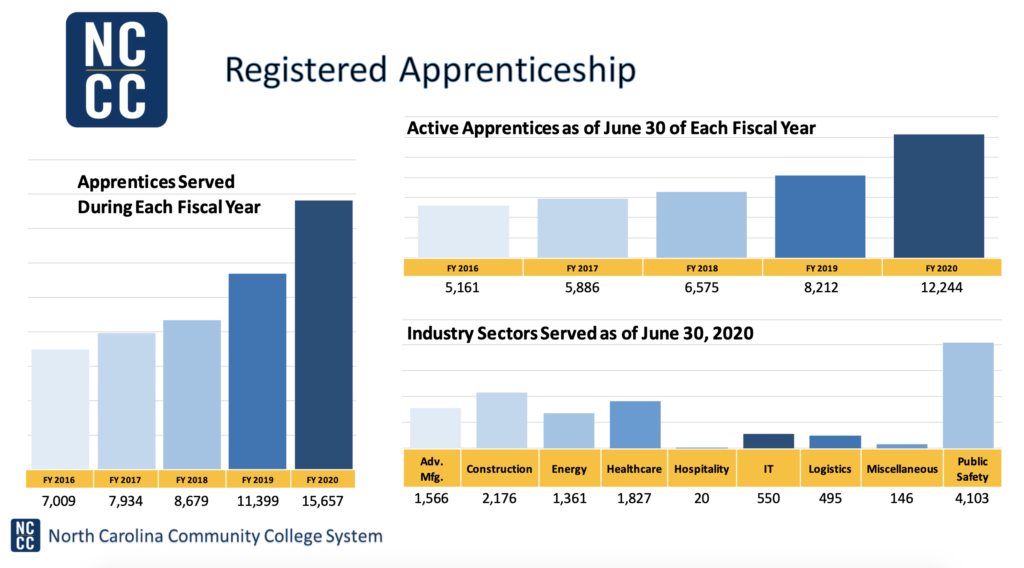
Meanwhile, youth apprenticeships have quadrupled since 2016, in part because of a youth tuition waiver.
High school students are eligible for a youth tuition waiver at community college if they register for either a pre-apprenticeship or registered apprenticeship before they graduate high school, continue to be part of that program within 120 days of graduating, and go on to attend a community college.
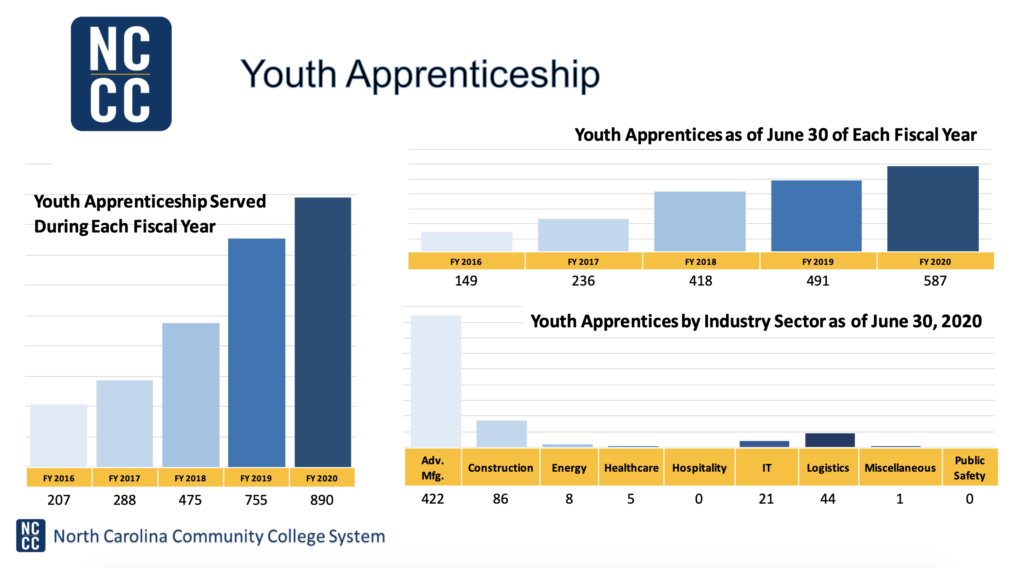
Here is how the program is funded.
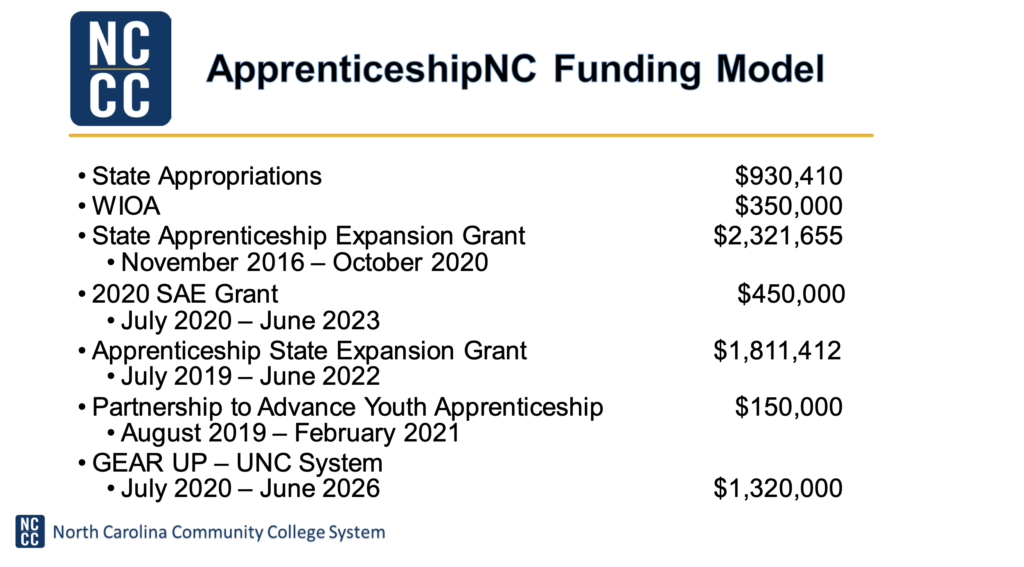
This is the 82nd year that registered apprenticeships have existed in North Carolina.
“It’s a time-tested model,” Little said.
The program began in the Department of Labor, moved to the Department of Commerce, and was moved to the community college system in 2017.
Recommended reading



